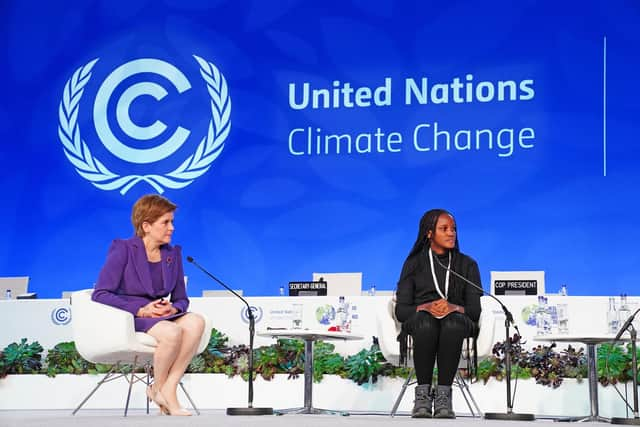Climate change: Only one SNP leadership candidate is fully committed to current plans for transition to net-zero emissions – Dr Richard Dixon
Alex Salmond was a great promoter of renewables and made the commitment to a climate bill with a guaranteed reduction in emissions of three per cent, year on year, in the 2007 SNP manifesto. He made much of Scotland’s tough targets in the 2009 Climate Act at the Copenhagen talks at the end of that year.
John Swinney was the Finance Secretary during the passage of the 2009 Act and worked hard behind the scenes to make sure it would pass unanimously. Nicola Sturgeon also chose to put considerable effort into tackling the problem, including championing environment-related gender issues, presiding over the 2019 Climate Act, and making Scotland the first country to offer payments for climate loss and damage. She also attended several UN talks and changed the language on oil and gas, distancing Scotland from the ‘every last drop’ policy of the UK Government. She could have chosen something else to put her energies into.
Advertisement
Hide AdAdvertisement
Hide AdOf course, the SNP did not deliver everything that campaigners called for but we may look back on the Salmond and Sturgeon years as happy times for climate action. Because, so far, the three contenders to be the next SNP leader, and presumably First Minister of Scotland, have had rather little to say on the issue.
All three have a statement on the SNP website. Humza Yousaf mentions building a well-being economy but none of the three mention climate change or the challenges and opportunities of going for net zero. Only Yousaf has replied to a letter from Stop Climate Chaos Scotland calling for a strong stance on global warming.
At the start of the race, in a flurry of pandering to special interests, two of the candidates fell over themselves to stick the knife into their own government’s plans to create a deposit return scheme for drink bottles and cans. Kate Forbes would pause the scheme, Ash Regan would scrap it. More reasonably, Yousaf said he would give a temporary exemption for small businesses.
Both Regan and Forbes have suggested that the transition out of oil and gas transition might need to be slowed down. Regan would support expanding North Sea oil and gas production, parroting the oil industry’s line about being dependent on imports. She is also an enthusiast for building more roads. Only Yousaf is fully committed to the current transition plans.
The Bute House Agreement between the SNP and the Scottish Green Party contains a number of really important commitments on climate change and the environment, including a massive programme to upgrade insulation and heating systems in people’s homes.


Yousaf is fully behind continuing to deliver on the agreement, while Regan said the SNP was being “held hostage” by the deal and she was not afraid of ditching it. Forbes says she supports it. Of course, the Greens could decide that they cannot work with Forbes or Regan, leaving the SNP short of the votes needed to elect a First Minister.
Whatever the outcome of the leadership election, the new SNP leader will have much to live up to when it comes to delivering on Scotland’s climate change targets.
Dr Richard Dixon is an environmental campaigner and consultant